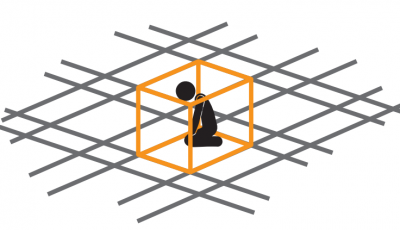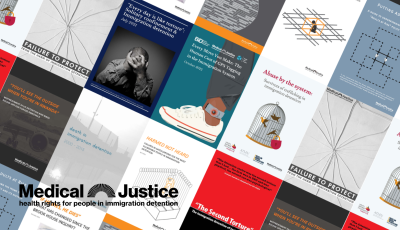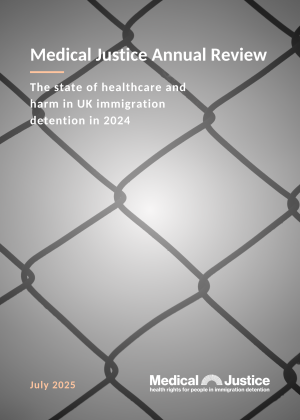Medical Justice volunteer clinicians visit people held in immigration detention, document scars of torture, assess deterioration in health, and challenge medical mistreatment.
We use medical evidence to secure lasting change through research, policy work, and strategic litigation. We work with parliamentarians and the media.
Latest news
View all newsI cannot imagine a life in detention. There was no hope. Nobody listened to me. I didn’t have a voice. I was in such a deep hole. To see someone come to you when you are locked up…Somebody came out of the blue. They reached out to me when I least expected it. When the doctor came to see me that day, it was a turning point in my life.
What we do

Helping people in detention
Medical Justice offers independent medical advice and assessments to people held in immigration detention. Medical Justice…

Research & reports
Based on casework evidence, Medical Justice carries out research and publishes reports to help to bring…

Immigration Detention Home Office Statistics
Medical Justice regularly requests information and statistics related to immigration detention from the Home Office through…
Our research
See more of our research
“You’ll see the outside when you’re in Rwanda”
Mistreatment in UK detention and mass round ups for forced removals
Volunteer with Medical Justice
To enable us to reach more vulnerable people in immigration detention, we need volunteer clinicians, especially GPs and psychologists, to visit clients in detention and write reports or contribute remotely, by email, reviewing medical records and providing opinions.
We also need volunteer interpreters to help us reach the people detained who most need our help.

